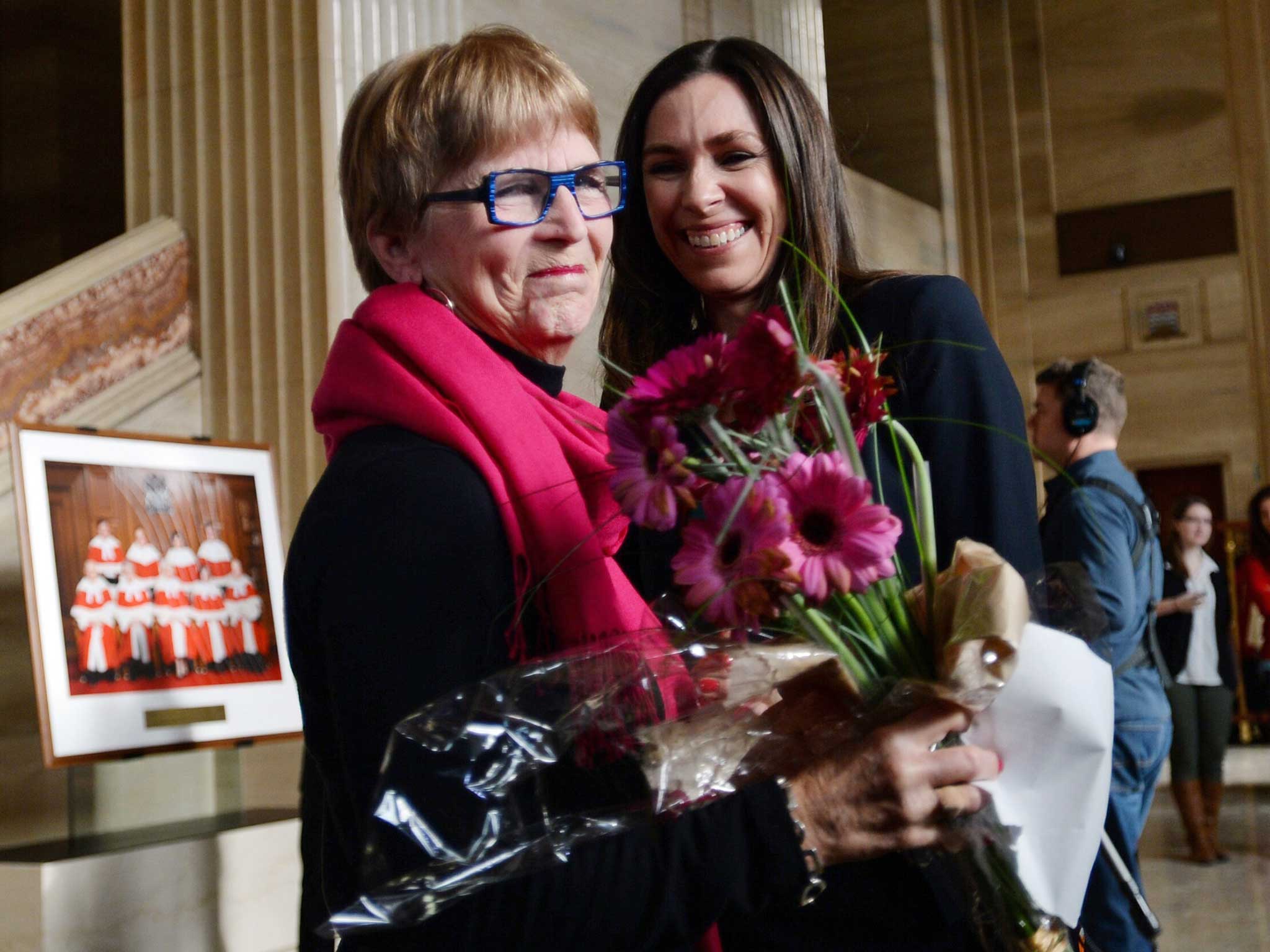Canada strikes down ban on assisted suicide
The country's Supreme Court has given doctors the right to help patients to die

Your support helps us to tell the story
From reproductive rights to climate change to Big Tech, The Independent is on the ground when the story is developing. Whether it's investigating the financials of Elon Musk's pro-Trump PAC or producing our latest documentary, 'The A Word', which shines a light on the American women fighting for reproductive rights, we know how important it is to parse out the facts from the messaging.
At such a critical moment in US history, we need reporters on the ground. Your donation allows us to keep sending journalists to speak to both sides of the story.
The Independent is trusted by Americans across the entire political spectrum. And unlike many other quality news outlets, we choose not to lock Americans out of our reporting and analysis with paywalls. We believe quality journalism should be available to everyone, paid for by those who can afford it.
Your support makes all the difference.Canada’s Supreme Court has struck down the country’s 1993 ban on assisted suicide, meaning doctors there can now help mentally competent patients with severe and incurable medical conditions to die. The ruling puts Canada among the few Western countries to permit the practice.
In a unanimous judgement, the court decided that clearly consenting adults who are suffering intolerably could choose to die, though their illness would not have to be terminal to qualify. The country’s federal government had argued for maintaining the ban and the Parliament in Ottawa has the power to overturn the court’s decision, but that eventuality is considered unlikely.
Instead, the court suspended its ruling for 12 months while Parliament and Canada’s medical establishment draft new legislation to address assisted suicide. The ban will then be lifted next year.
Under current law, the court said in its judgement, “People who are grievously and irremediably ill cannot seek a physician’s assistance in dying and may be condemned to a life of severe and intolerable suffering. A person facing this prospect has two options: she can take her own life prematurely, often by violent or dangerous means, or she can suffer until she dies from natural causes. The choice is cruel.”
The case was brought to the Supreme Court by the families of two Canadian women backed by a civil rights group. Gloria Taylor, who suffered from the neurodegenerative disease Amyotrophic Lateral Sclerosis (ALS), won an exemption for a physician-assisted death from a lower court in 2012, but that decision was overturned on appeal. She died from an infection later that year.
Kay Carter, who was 89, suffered from spinal stenosis, a degenerative disease that left her incapacitated and forced to lie, she said, “flat as an ironing board.” In 2010 she underwent an assisted suicide in Switzerland. In overturning its ban, Canada joins several European countries and US states including Oregon, Washington and Vermont, where the practice is permitted.
The Canadian Supreme Court previously ruled on assisted suicide in 1993, when ALS sufferer Sue Rodriguez argued for her right to die. The court narrowly rejected her plea, but the case made her a household name in Canada. Rodriguez ultimately took her own life with the help of an anonymous doctor the following year.
“This is one incredible day,” Grace Pastine, of the British Columbia Civil Liberties Association, the group that brought the case on behalf of Taylor and Carter, told Reuters today. “Physician-assisted dying is now recognized for what it is: a medical service that brings an end, for some individuals, to unbearable suffering.”
Join our commenting forum
Join thought-provoking conversations, follow other Independent readers and see their replies
Comments